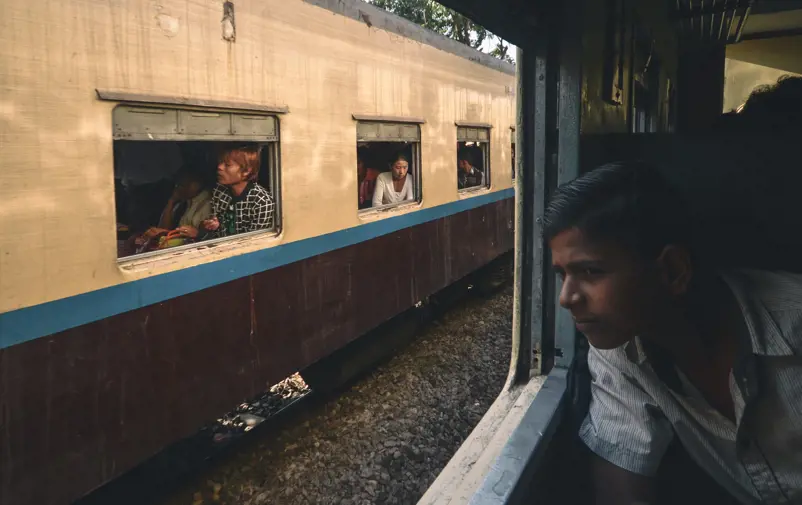FBA in Myanmar
Myanmar has, since its independence in 1948, been plagued by authoritarian rule and conflicts between the regime and different ethnic armed organizations. FBA’s activities in Myanmar are aimed at strengthening the rule of law and promoting inclusive peacebuilding and dialogue.In February 2021, the armed forces in Myanmar carried out a coup d’état. State-counsellor Aung San Suu Kyi and President U Win Myint were detained, the parliament was disbanded, and a military junta led by the commander in chief Min Aung Hlaing seized power. This has complicated the work for sustainable peace and democracy. After the coup, FBA suspended cooperation with official actors controlled by the military junta on national as well as regional levels.
Instead, FBA’s activities are focused on cooperation with the democracy movement, an umbrella term for various organizations that refuse to accept the military’s coup d’état. One of the democracy movement’s most notable institutions is the parallel government National Unity Government (NUG).
FBA contributes to an inclusive and equal dialogue about the promotion of rule of law, and how to ensure the security needs of the entire population in a future, federal, and democratic Myanmar. This work focuses on the constitutional process led by the democracy movement.
Throughout most of the country’s modern history, Myanmar has been a harsh dictatorship characterized by gross human rights violations. A gradual liberalization began after 2010, and a predominantly civilian government assumed power in 2016. Despite the armed forces maintaining a tight grip on important state institutions, there was hope for a continued democratization process.
In 2015, the government and ten of Myanmar’s many ethnic armed organizations signed a nationwide ceasefire agreement. However, the peace talks that followed were unsuccessful. Instead, the fighting intensified in some parts of the country. The coup d’état in 2021 changed the situation radically. The population protested resolutely against the military, which responded with even more violence, and several new armed groups have been established in different parts of the country.
Myanmar is also severely affected by poverty, which has drastically increased due to the Covid-19 pandemic, the coup, and the violence. About one half of the population is living in poverty according to the UN. As a result of the coup d’état, and the increased violence that followed, hundreds of thousands of people have been forced to flee, making an already dire humanitarian situation in many parts of the country even worse.
Within the framework of Sweden’s development cooperation with Myanmar, FBA focuses on the following areas:
Dialogue and peace mediation
In cooperation with key actors within the democracy movement, FBA contributes to discussions about a peaceful and democratic future in Myanmar. By providing advise and capacity building, FBA is strengthening dialogue between actors and the inclusion of women’s organizations and other actors that are often marginalized. FBA is also contributing to the coordination of international, capacity strengthening support for the constitution process.
Security sector reform
FBA improves the conditions for an inclusive future reform of the security sector. The focus is on creating a reform process in which formerly marginalized groups can participate and making democratic control of the security sector a part of the constitution of Myanmar.
Rule of law, human rights and election support
Myanmar has a long history of discrimination against ethnic minorities, and those responsible are seldomly held accountable. FBA’s activities are aimed at increasing the understanding of rule of law and its main functions for inclusive and fair societies, and as a result, sustainable peace.
Click here to read the entire strategy for Sweden’s development cooperation with Myanmar 2018–2022.
Read more
New mission: peacebuilding in Myanmar
Laborious way towards democracy in Myanmar
Factsheet about FBA’s work in Myanmar
Photo: Eddy Milfort








 >
> >
>

